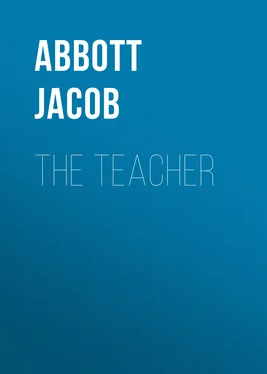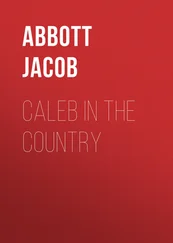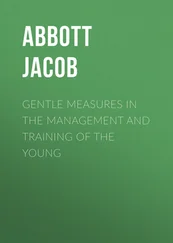Jacob Abbott - The Teacher
Здесь есть возможность читать онлайн «Jacob Abbott - The Teacher» — ознакомительный отрывок электронной книги совершенно бесплатно, а после прочтения отрывка купить полную версию. В некоторых случаях можно слушать аудио, скачать через торрент в формате fb2 и присутствует краткое содержание. Жанр: foreign_edu, pedagogy_book, на английском языке. Описание произведения, (предисловие) а так же отзывы посетителей доступны на портале библиотеки ЛибКат.
- Название:The Teacher
- Автор:
- Жанр:
- Год:неизвестен
- ISBN:нет данных
- Рейтинг книги:5 / 5. Голосов: 1
-
Избранное:Добавить в избранное
- Отзывы:
-
Ваша оценка:
- 100
- 1
- 2
- 3
- 4
- 5
The Teacher: краткое содержание, описание и аннотация
Предлагаем к чтению аннотацию, описание, краткое содержание или предисловие (зависит от того, что написал сам автор книги «The Teacher»). Если вы не нашли необходимую информацию о книге — напишите в комментариях, мы постараемся отыскать её.
The Teacher — читать онлайн ознакомительный отрывок
Ниже представлен текст книги, разбитый по страницам. Система сохранения места последней прочитанной страницы, позволяет с удобством читать онлайн бесплатно книгу «The Teacher», без необходимости каждый раз заново искать на чём Вы остановились. Поставьте закладку, и сможете в любой момент перейти на страницу, на которой закончили чтение.
Интервал:
Закладка:
I have said that this endless multiplicity and variety cannot be reduced and simplified by classification. I mean, of course, that this can be done only to a very limited extent, compared with what may be effected in the other pursuits of mankind. Were it not for the art of classification and system, no school could have more than ten scholars, as I intend hereafter to show. The great reliance of the teacher is upon this art, to reduce to some tolerable order, what would otherwise be the inextricable confusion of his business. He must be systematic . He must classify and arrange; but after he has done all that he can, he must still expect that his daily business will continue to consist of a vast multitude of minute particulars, from one to another of which the mind must turn with a rapidity, which, few of the other employments of life ever demand.
These are the essential sources of difficulty with which the teacher has to contend; but, as I shall endeavor to show in succeeding chapters, though they cannot be entirely removed, they can be so far mitigated by the appropriate means, as to render the employment a happy one. I have thought it best however, as this work will doubtless be read by many, who, when they read it, are yet to begin their labors, to describe frankly and fully to them the difficulties which beset the path they are about to enter. "The wisdom of the prudent is, to understand his way. It is often wisdom to understand it beforehand."
CHAPTER II.
GENERAL ARRANGEMENTS
The distraction and perplexity of the teacher's life are, as was explained in the last chapter, almost proverbial. There are other pressing and exhausting pursuits, which wear away the spirit by the ceaseless care which they impose, or perplex and bewilder the intellect by the multiplicity and intricacy of their details. But the business of teaching, by a pre-eminence not very enviable, stands, almost by common consent, at the head of the catalogue.
I have already alluded to this subject in the preceding chapter; and probably the greater majority of actual teachers will admit the truth of the view there presented. Some will however, doubtless say, that they do not find the business of teaching so perplexing and exhausting an employment. They take things calmly. They do one thing at a time, and that without useless solicitude and anxiety. So that teaching, with them, though it has, indeed, its solicitudes and cares, as every other responsible employment must necessarily have, is, after all, a calm and quiet pursuit, which they follow from month to month, and from year to year, without any extraordinary agitations, or any unusual burdens of anxiety and care.
There are indeed such cases, but they are exceptions; and unquestionably an immense majority, especially of those who are beginners in the work, find it such as I have described. I think it need not be so; or rather, I think the evil may be avoided to a very great degree . In this chapter I shall endeavor to show how order may be produced out of that almost inextricable mass of confusion, into which so many teachers, on commencing their labors, find themselves plunged.
The objects then, to be aimed at in the general arrangements of schools, are two-fold.
1. That the teacher may be left uninterrupted, to attend to one thing at a time.
2. That the individual scholars may have constant employment, and such an amount and such kinds of study, as shall be suited to the circumstances and capacities of each.
I shall examine each in their order.
1. The following are the principal things which, in a vast number of schools, are all the time pressing upon the teacher: or rather, they are the things which must, every where, press upon the teacher, except so far as, by the skill of his arrangements, he contrives to remove them.
1. Giving leave to whisper or to leave seats.
2. Mending pens.
3. Answering questions in regard to studies.
4. Hearing recitations.
5. Watching the behavior of the scholars.
6. Administering reproof and punishment for offences as they occur.
A pretty large number of objects of attention and care, one would say, to be pressing upon the mind of the teacher at one and the same time,—and all the time , too! Hundreds and hundreds of teachers in every part of our country, there is no doubt, have all these, crowding upon them from morning to night, with no cessation, except perhaps some accidental and momentary respite. During the winter months, while the principal common schools in our country are in operation, it is sad to reflect how many teachers come home, every evening, with bewildered and aching heads, having been vainly trying all the day, to do six things at a time, while He, who made the human mind, has determined that it shall do but one. How many become discouraged and disheartened by what they consider the unavoidable trials of a teacher's life, and give up in despair, just because their faculties will not sustain a six-fold task. There are multitudes who, in early life, attempted teaching, and, after having been worried, almost to distraction, by the simultaneous pressure of these multifarious cares, gave up the employment in disgust, and forever afterwards wonder how any body can like teaching. I know multitudes of persons to whom the above description will exactly apply.
I once heard a teacher who had been very successful, even in large schools, say that he could hear two classes recite, mend pens, and watch his school, all at the same time; and that, without any distraction of mind, or any unusual fatigue. Of course the recitations in such a case must be memoriter. There are very few minds however, which can thus perform triple or quadruple work, and probably none which can safely be tasked so severely. For my part, I can do but one thing at a time; and I have no question that the true policy for all, is, to learn, not to do every thing at once , but so to classify and arrange their work, that they shall have but one thing to do . Instead of vainly attempting to attend simultaneously to a dozen things, they should so plan their work, that only one will demand attention.
Let us then examine the various particulars above mentioned in succession, and see how each can be disposed of, so as not to be a constant source of interruption and derangement.
1. Whispering and leaving seats. In regard to this subject, there are very different methods, now in practice in different schools. In some, especially in very small schools, the teacher allows the pupils to act according to their own discretion. They whisper and leave their seats whenever they think it necessary. This plan may possibly be admissible in a very small school; that is, in one of ten or twelve pupils. I am convinced, however, that it is very bad here. No vigilant watch, which it is possible for any teacher to exert, will prevent a vast amount of mere talk, entirely foreign to the business of the school. I tried this plan very thoroughly, with high ideas of the dependence which might be placed upon conscience and a sense of duty, if these principles are properly brought out to action in an effort to sustain the system. I was told by distinguished teachers, that it would not be found to answer. But predictions of failure in such cases only prompt to greater exertions, and I persevered. But I was forced at last to give up the point, and adopt another plan. My pupils would make resolutions enough; they understood their duty well enough. They were allowed to leave their seats and whisper to their companions, whenever, in their honest judgment, it was necessary for the prosecution of their studies . I knew that it sometimes would be necessary, and I was desirous to adopt this plan to save myself the constant interruption of hearing and replying to requests. But it would not do. Whenever, from time to time, I called them to account, I found that a large majority, according to their own confession, were in the habit of holding daily and deliberate communication with each other, on subjects entirely foreign to the business of the school. A more experienced teacher would have predicted this result; but I had very high ideas of the power of cultivated conscience; and in fact, still have. But then, like most other persons who become possessed of a good idea, I could not be satisfied without carrying it to an extreme.
Читать дальшеИнтервал:
Закладка:
Похожие книги на «The Teacher»
Представляем Вашему вниманию похожие книги на «The Teacher» списком для выбора. Мы отобрали схожую по названию и смыслу литературу в надежде предоставить читателям больше вариантов отыскать новые, интересные, ещё непрочитанные произведения.
Обсуждение, отзывы о книге «The Teacher» и просто собственные мнения читателей. Оставьте ваши комментарии, напишите, что Вы думаете о произведении, его смысле или главных героях. Укажите что конкретно понравилось, а что нет, и почему Вы так считаете.












